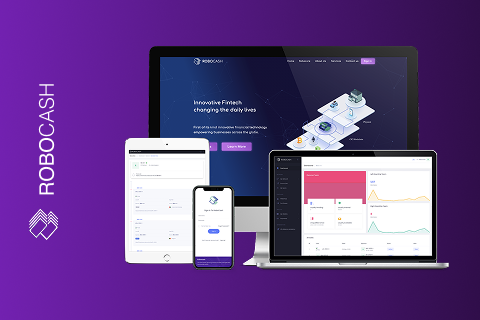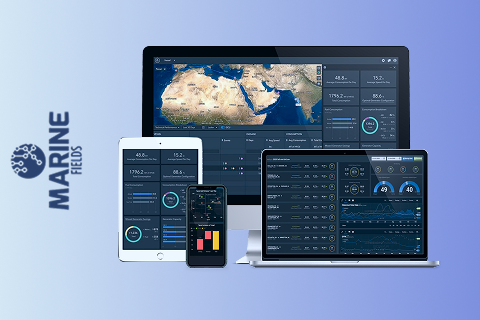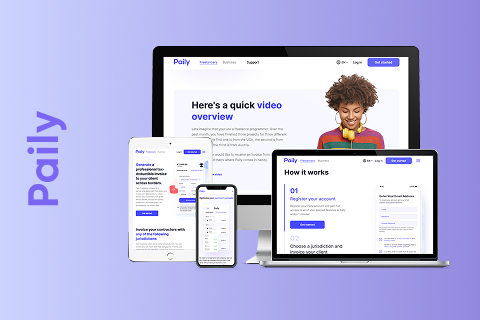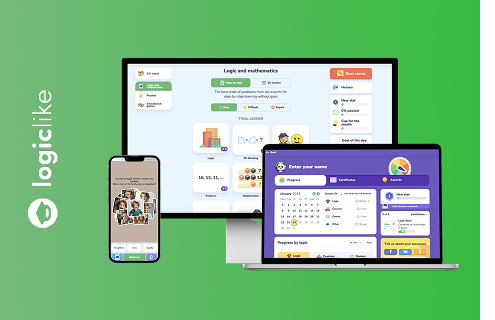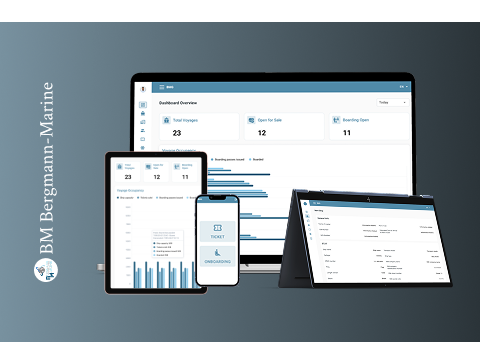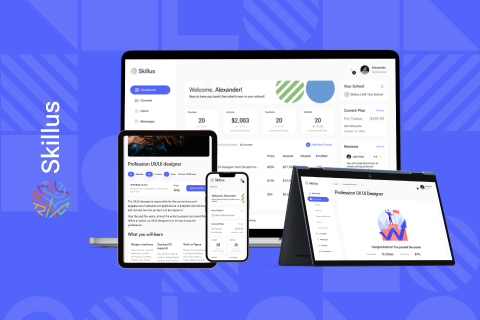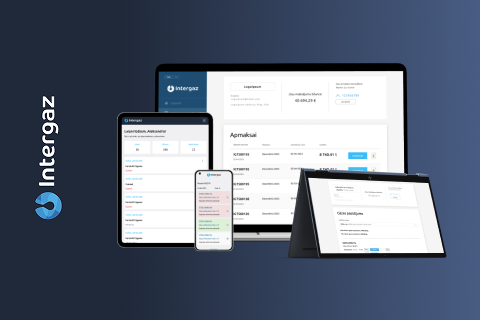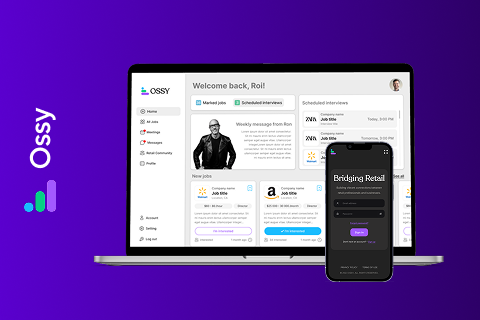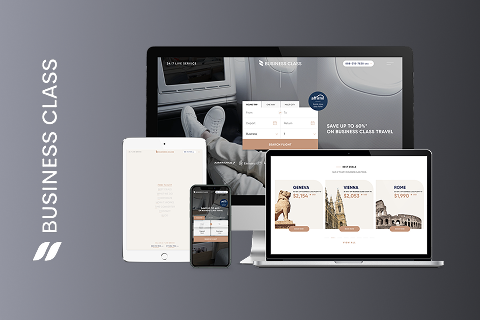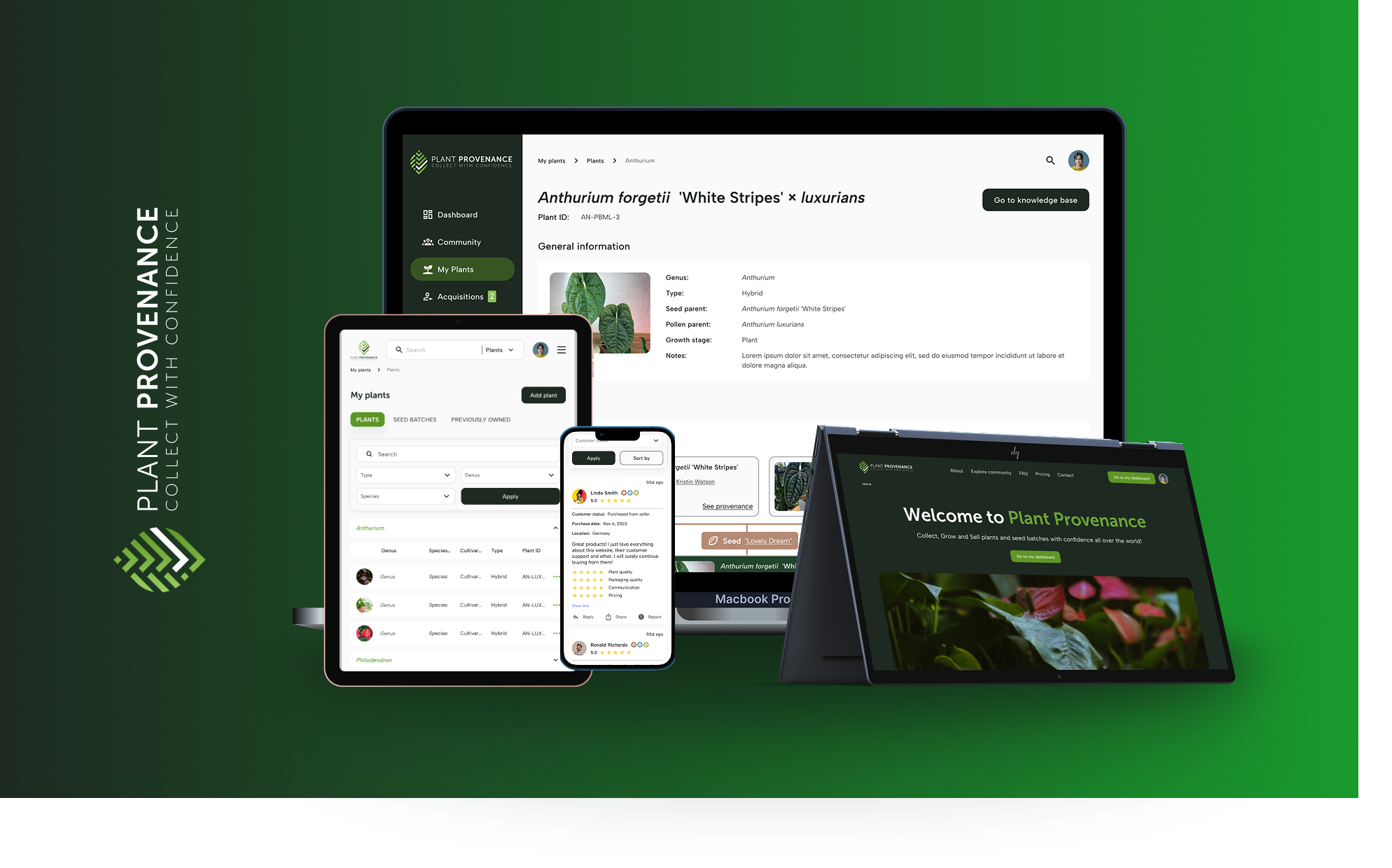Please tell us about yourself in the context of your company and give a brief intro to the organization.
I'm the founder of
Akdev Group, a software development company I started back in 2017 after leaving a corporate role. I was young, full of energy, and fortunate to have reliable partners by my side who brought in our very first clients. Since then, we've grown into a strong team focused on delivering custom software solutions across a range of
industries —
including Logistics & Transportation, Energy & Natural Resources, Travel Tech, EdTech, and FinTech. To date, we've
successfully delivered over 60 projects in these domains, tailored to diverse client goals and challenges — solutions that help hundreds of companies operate more efficiently and make life better for millions of people every day.
What was the core reason behind founding this company?
At the time, I felt a strong urge to build something of my own. I had
a clear vision of how software development should really serve businesses—not just write code, but solve real problems. With the right people around me and early client trust, it felt like
the perfect moment to take the leap.How is your company different from the competitors in the market?
What sets us apart is that we don’t just “do what the client says.” That means we don’t default to the typical “we were given requirements — we wrote the code” approach. Instead, we dive deep
to understand the actual problem and the real challenge behind the original request — and in many cases, help the client articulate or even redefine it. Rather than blindly following a list of predefined requirements, we
focus on guiding our clients toward solutions that truly serve their goals, even if that means rethinking the initial assumptions. We ask the right questions, bring clarity, and co-create a path that leads to measurable impact.
This approach allows us to deliver
software that’s not just functional, but meaningful — with a clear purpose and tangible business value.
We act as
a strategic technology partner, not just a delivery team. That means offering insights, challenging assumptions when needed, and ensuring every line of code contributes to outcomes that matter. This mindset — combined with deep technical expertise and a strong sense of responsibility — is what consistently makes us
a partner of choice in the market.
Does your company have an in-house team to work on projects, or do you outsource employees as required? If anything else, please share.
Our team is built around
a strong in-house core, which gives us complete control over quality, consistency, and communication at every stage of the project. We actively invest in
the growth of our people — both through real project experience and continuous learning — which enables us t
o confidently solve complex, domain-specific challenges across a range of industries.
In rare cases, when a project requires a layer of highly specialized input that lies outside our core development scope — for example, implementing advanced 3D visualizations using game engines like Unity or Unreal for simulation or training modules — we may involve one of our long-standing,
trusted development partners. These teams bring complementary expertise that enhances our solution, while all architecture, delivery, and integration remain fully under our technical and managerial oversight.
This structure allows us to stay agile, grow expertise from within, and consistently
deliver top-tier results — regardless of project complexity.
Which industries do you cover in general? Do you have repetitive clients? If yes, please describe their ratio.
We’ve built strong, practical expertise across several industries — particularly in
EdTech, FinTech, Travel Tech, Transportation, Natural Resources, and Multimedia. Many of the solutions we’ve delivered in these domains go far beyond standard web or mobile apps — they include
complex platforms such as custom CRMs, ERP systems, learning platforms, billing engines, and integrations with third-party ecosystems.
Thanks to our industry focus and hands-on experience, clients rely on us not just for solid engineering, but also for smart thinking around product design and long-term scalability.
As a result, a large share of our business comes from returning clients — whether they bring us in to expand an existing product, continue with long-term support and iterative development, or launch something entirely new. This
ongoing trust is the clearest indicator that we’re delivering real, lasting value — not just ticking the box on individual deliverables.
Does your company use AI technologies in service offerings? If yes, could you describe how AI is used in your services?
Absolutely — we use AI technologies where they bring clear, practical value, both in client projects and within our internal workflows. On the client side, we’ve applied AI to build smart content recommendation engines, and implement predictive analytics for business performance. Those kinds of solutions help automate routine tasks and support faster, more informed decisions.
Internally, we use AI-powered tools to summarize and structure technical documentation, support sprint planning by highlighting potential bottlenecks, and analyze team workload distribution to improve transparency and planning accuracy. This helps us keep development focused, balanced, and predictable.
We see AI as a practical tool — not something we use for the sake of trend, but
a way to thoughtfully enhance the efficiency, clarity, and overall impact of what our clients ultimately receive.What kind of support services do you offer to your clients?
We support the
full development cycle — from early planning at the idea stage and product design to deployment and long-term support.
Clients don’t just get a delivered product — they get a partner who stays involved: maintaining infrastructure, rolling out updates, and continuously improving the solution based on real-world needs.
We don’t just hand over code — we help ensure the product runs smoothly, adapts to change, and keeps delivering value over time.
Are your pricing rates competitive? How do you justify your business pricing model compared to your competitors?
Our pricing is around the market average — though that naturally depends on which market you compare us to. What makes us competitive is the balance we offer: strong engineering, reliability, a product mindset, and a genuine interest in the client’s business goals. Our clients don’t just hire developers — they get a reliable team that brings business context, product thinking, and long-term commitment.
It’s a cost-effective model for those who value quality, clarity, and real results.Where will you see your company in the next 10 years, and what are your future plans for that?
Over the next 10 years, we see our company deepening its focus on a select set of industries. We’ll continue building
expertise in complex, domain-specific areas and exploring how
technology can solve critical business challenges — not just functionally, but strategically.
For example, we’re currently doubling down on the Travel niche, with the goal of becoming one of the top technology partners in that space. In parallel, we’ll keep expanding our capabilities in industries like Logistics and Natural Resources — helping businesses evolve through scalable, intuitive software that grows with their needs.
Long-term, our vision is clear: to be recognized not just for what we build, but for how we think and work — as a trusted partner that consistently delivers clarity, expertise, and lasting impact.
What steps are you taking to adapt your services for a mobile-driven world?
We actually made that shift over five years ago. The key was changing the mindset: people now solve most of their problems through their phones. That’s why we
design every product mobile-first — putting usability on small screens at the core, not as an afterthought. Everything else follows naturally. For us, adapting to a mobile-driven world isn’t a separate step —
it’s the baseline for how we build.Could you explain how you create and sustain healthy relationships with your clients?
Healthy client relationships start with a
clear focus on business value. We begin by aligning on the client’s goals, helping define them where needed, and selecting the right solution to meet them effectively. That strategic foundation builds
trust from day one.
To make collaboration smooth, every client works with a dedicated manager who leads the project end to end — through convenient communication channels, regular reporting, and structured checkpoints. This gives clients full visibility into progress without overloading them with operational details.
Administrative and financial matters are handled by a separate support team, so clients can stay focused on the project itself. This setup keeps communication clear, comfortable, and easy to manage at every stage.
What steps are involved in your plan to handle and beat the competition in the market?
We believe in depth, not breadth. Instead of trying to be everything to everyone, we focus on becoming
true experts in narrow niches. That’s how we stay ahead — by offering deeper knowledge, more relevant insights, and outcome-driven solutions than generalist competitors.
What is the biggest challenge that you have faced, and how did you overcome it to make your company successful?
In B2B, it’s not uncommon for businesses to rely on a core group of clients — and when the market shifts, even the strongest long-term partnerships can be disrupted, despite everyone’s intention to keep working together. One of the biggest challenges we’ve faced was navigating exactly that kind of situation.
It put real pressure on our operations, and we had to make some tough decisions. But we pulled through by staying transparent, reducing costs, and shifting focus to new revenue streams. It was a difficult lesson, but it ultimately made us stronger, more adaptable, and better prepared for the future.




